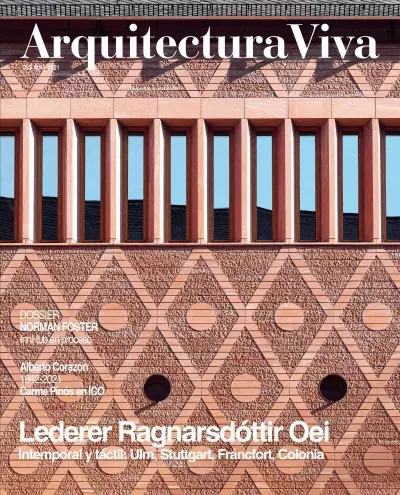

(Stuttgart, 1962)
In the German municipality of Allensbach, near Konstanz, the Hegne convent complex includes the Marianum secondary school, where a new annex was needed to accommodate additional facilities. The new building, 109 meters long and about 12 wide, directl
The annex sought not only to accommodate new programs but also to improve a complicated urban situation characterized by loosely related buildings and a heavily used street. A new underground parking garage forms an entrance square that connects the
On the outskirts of the city, a building provides new spaces for classes and meetings to be shared by a prestigious ‘gymnasium’ and the historical choir school of the cathedral of Cologne. The new educational facilities make use of the formal and mat
A building with explicit references to medieval architecture replaces an obsolete brutalist annex that never managed to gain acceptance in the historical core of the city of Frankfurt. An entrance plaza envisioned as an open-air exhibition space divi
The Evangelical Protestant Church’s new headquarters in Stuttgart occupies the site of a 15th-century Dominican monastery destroyed in World War II and makes its remnants part of it. The complex replaces the disjointed postwar reconstruction and crea
In an artery opened in the 1950s to decongest the historic center, the extension of the local savings bank dialogues with the medieval fabric without sacrificing its contemporary essence. The use of recycled bricks echoes the solid walls of the build
Admiramos la pátina que poseen las obras de Lewerentz, Anselm y Celsing, edificios modernos integrados en su entorno como si siempre hubieran estado ahí. Nuestro colegio del parque de Scharnhauser en Ostfildern, cerca de Stuttgart, debía ser algo par
‘This will kill that.’ In Victor Hugo’s prophecy – which was also McLuhan’s – ‘this’ referred to books and ‘that’ to cathedrals. It was a process of creative destruction that lasted as long as it took digitalization to arrive, and with it a new proph
Unlike so many architects preoccupied with dissolving the boundary between interior and exterior, the architectural trio formed by Arno Lederer, Jórunn Ragnarsdóttir, and Marc Oei turns back to the tradition of solid walls and clearly marked enclosur

